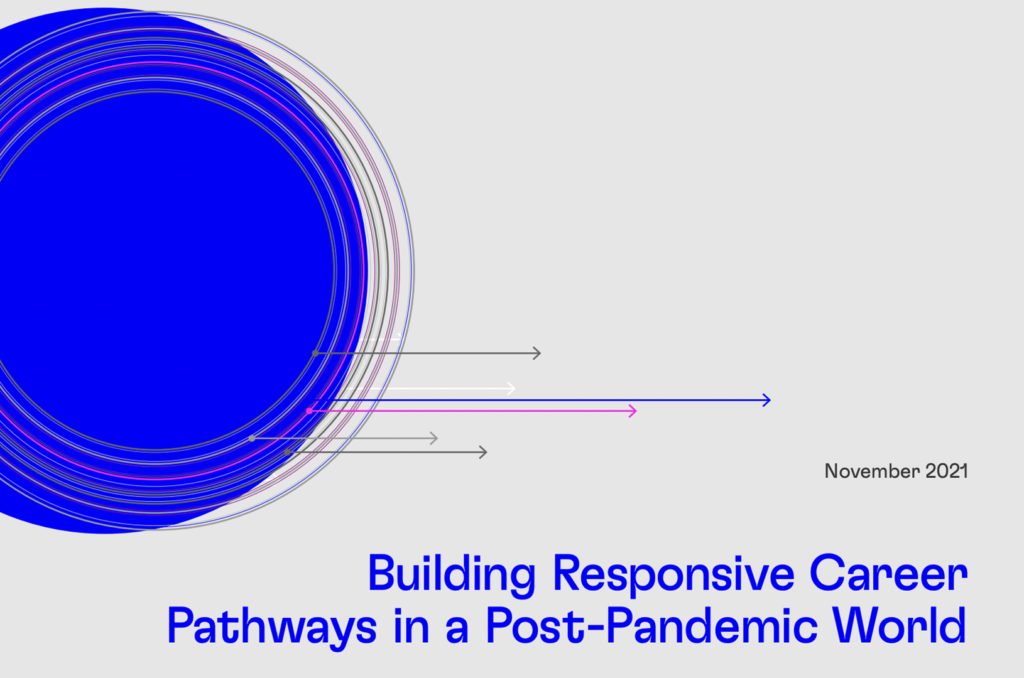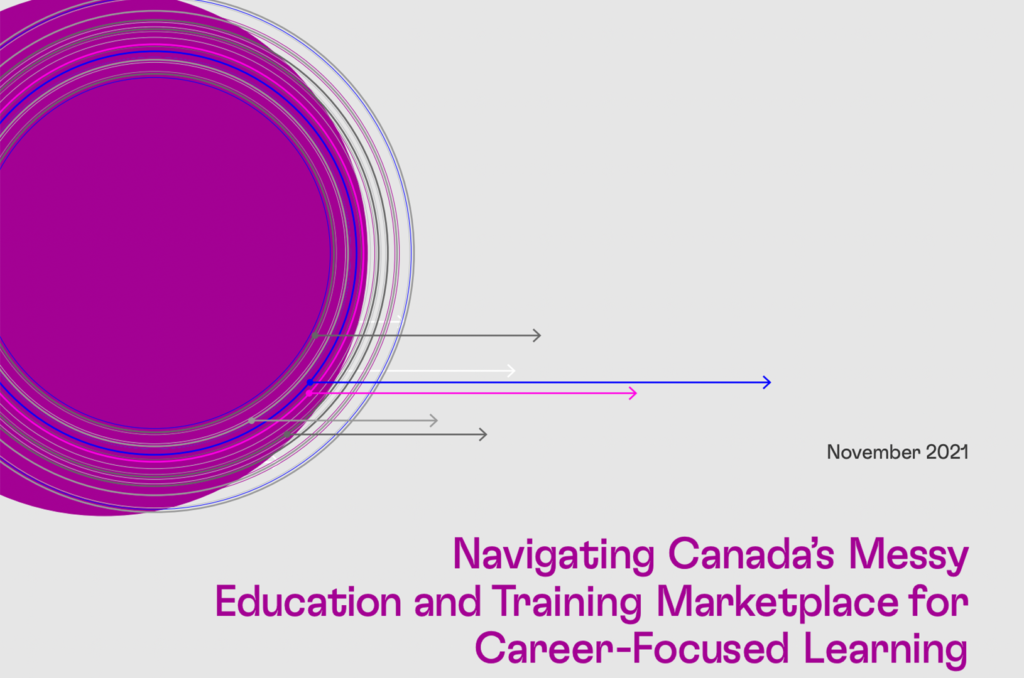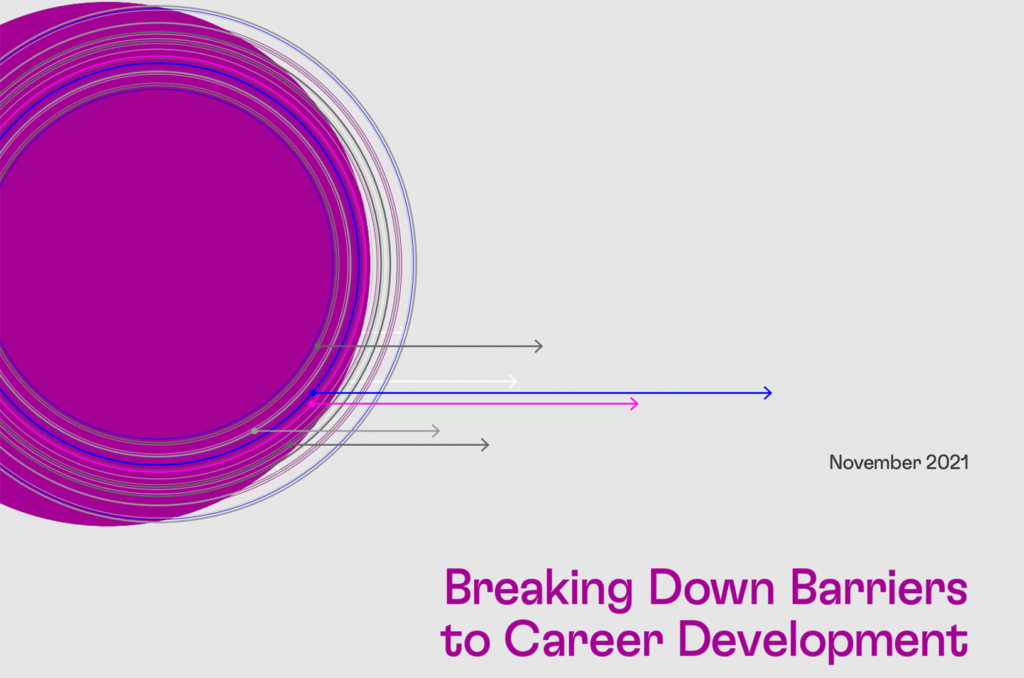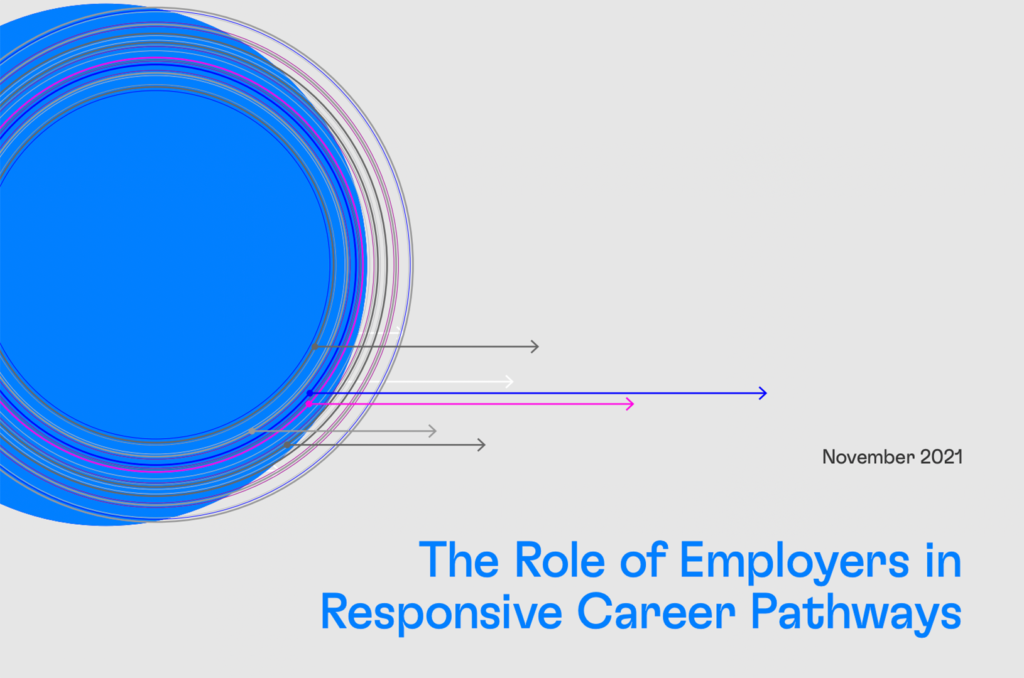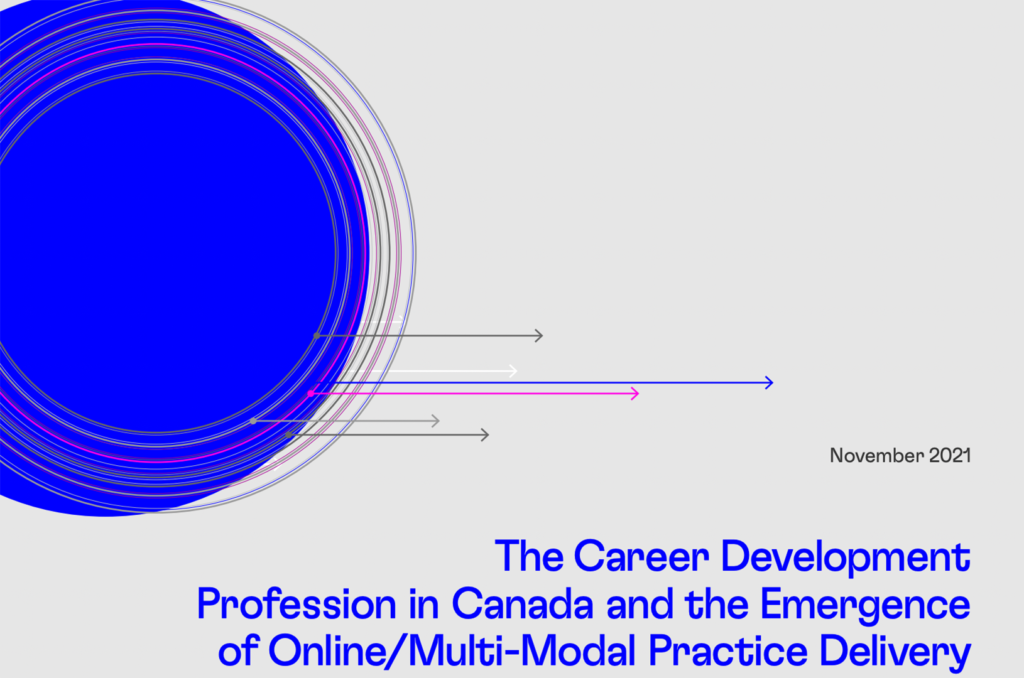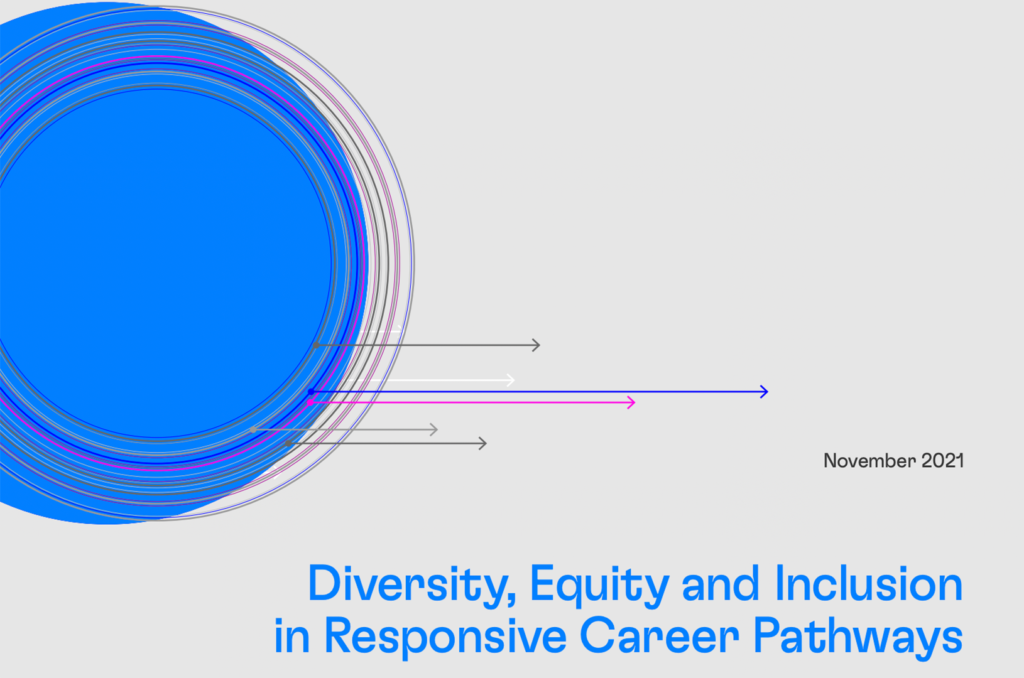Responsive career pathways
The world of work is changing rapidly. Navigating the pressures that were accelerated by the pandemic, such as technological changes, sector disruptions, labour shortages, and a growing focus on skills is essential to shaping a sustainable and inclusive strategy for recovery.
The Future Skills Centre (FSC) has made Responsive Career Pathways a strategic priority in recognition of the pivotal role career guidance will play now and in the future in equipping individuals to navigate this changing world of work.
FSC and Blueprint are leading work in the area of career guidance to identify bold solutions that could support the growing segment of the labour force that are facing career transitions. We have pursued an ambitious research program, engaging Canadian and international subject matter experts and thought leaders to identify gaps and needs, explore options, and provide actionable insights to equip Canadians to navigate the future of work.
The Responsive Career Pathways research papers use a future-oriented, evidence-driven, and systemic approach with the aim of fostering ideas to drive innovation in career guidance practices across Canada. The papers include a wide range of ideas for strengthening career guidance including:
- Addressing fragmentation in our careers and employment systems and policies
- Adopting more evidence-informed and person-centered service delivery practices
- Empowering career development practitioners
- Using labour market information and technological tools to inform career decisions
- Removing barriers for individuals as they navigate career pathways
Key findings include:
Canada’s career guidance systems are fragmented and need strengthening. This has led to a national career development model that is mostly reactionary (“fail first”) and accessed when people find themselves in a state of crisis. This leaves individuals and businesses at a disadvantage, especially compared to countries with a more comprehensive approach.
An important constraint has been the absence of a common foundation for education and training in Canada, with primary jurisdictional responsibility at the provincial and territorial level. A consequence is that information about education and training in Canada is inconsistent, fragmented, inaccessible or even non-existent.
Employers are starting to question their established practices in HR, and approaches to career development and skills training, and they are concerned about how to ensure their workforce is resilient in the face of labour market changes.
The Responsive Career Pathways Research Brief consolidates the key findings from our past 9 research papers. In this brief, we outline key innovation challenges and opportunities for career guidance services in Canada, and highlight common barriers to accessing these services.


